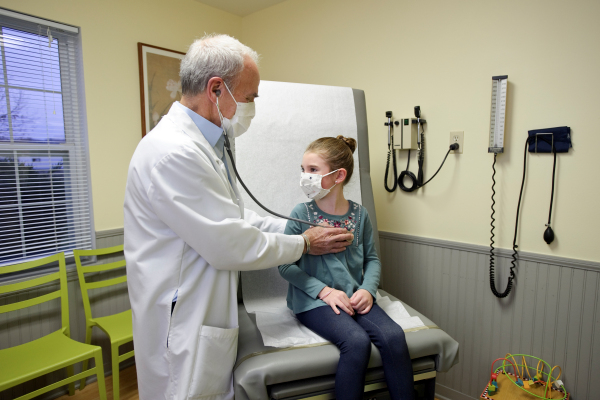Latest News
- Four years after Indigenous woman dies in Niagara Hospital, family still waiting for coroner's investigation
- Lawyer: British Columbia RCMP officer should be fired or resign immediately
- B.C. government looks to offer loan guarantees to property owners in Cowichan Aboriginal title area
- Uber driver's account in Toronto suddenly deactivated; only source of income cut off after 'duplicate account' claim
- TDSB education chief fired by provincial supervisor; sweeping changes at Canada's largest education board
Latest Ads
-
Jasmine Jewel
Call
-
Omidan group
Call
-
Amir Madanpour
Call
-
Dimo studio
Call
-
Yorkacademy
Call
-
Maryambagheri
Call
-
Shishlix Restaurant
Call

Canadians travel to Mexico for Lyme disease treatment
Medical tourism to Mexico has attracted foreign visitors for several decades. However, this allure is no longer limited to well-known cosmetic surgeries like breast augmentation or rhinoplasty. Currently, many clinics offer alternative treatments for chronic and life-altering diseases such as cancer, diabetes, and even Lyme disease.
Marnie Freeman from Vancouver shares her experience in 2019. After Canadian tests yielded negative results, she was diagnosed with Lyme disease by a German laboratory. Her symptoms, including facial numbness and chronic pain, led her to seek treatment in Mexico. The 56-year-old traveled to the Sanoviv Medical Institute in Rosarito, located in southern Tijuana, where she spent two weeks and paid approximately 29,000 Canadian dollars for treatment, which included hyperthermia, intravenous antibiotics, and meals.
Her condition improved, and the clinic's staff recommended continuing treatment for another six months, but she declined. Freeman explained, "One of the reasons I chose this center was their holistic approach to healing. It's something we don't see in healthcare in our country. They take care of the mind, body, and spirit comprehensively, and it had a profound impact on me."
Lyme disease is caused by the bacterium Borrelia burgdorferi, which is transmitted by infected ticks, primarily black-legged ticks.
The Canadian protocol for Lyme disease includes an initial test to determine if the person is infected and then a maximum of three weeks of antibiotic treatment. Health Canada does not track the number of individuals seeking medical treatment abroad, but clinics specializing in Lyme disease along the Canadian border report that many of their patients are Canadian.
Morales, the founder of Lyme Mexico, shared insights regarding his clinic's experience in Puerto Vallarta, which specifically treats Lyme disease. He stated, "Unfortunately, there is a significant gap in the approach to tick-related disorders worldwide, especially in Canada. Many doctors there, like in Australia, either don't diagnose this disease or don't pay attention to it."
Dr. Lenora Saxinger, an infectious disease physician, emphasized that tick epidemiology in Canada is closely monitored, including surveillance for infected ticks and human cases using reliable tests. Saxinger stated that the Canadian treatment protocol for Lyme disease is scientifically supported. While some individuals may experience ongoing symptoms despite antibiotic treatment, seeking alternative treatments abroad may not alleviate their symptoms and may even lead to adverse reactions.
Saxinger, who is also an associate professor in the Faculty of Medicine and Dentistry, said, "It makes me very uncomfortable because I think the level of frustration for people with non-specific symptoms can be very high. However, searching for therapies beyond Health Canada's protocol or doing so without a positive Lyme test may have unintended consequences and may divert attention from addressing the underlying health problem by healthcare providers."
When it comes to the treatment protocol and Lyme disease, some provincial health officials, including those in B.C. and Alberta, refer to Health Canada's guidelines. A spokesperson for the Quebec Ministry of Health and Social Services expressed concerns about medical tourism for Lyme disease and stated that scientists do not evaluate treatments offered in other countries.
The statement mentioned, "Interpreting laboratory analysis results conducted outside the country, especially if performed by private and non-accredited laboratories, should be done with caution."
More than half of Quebec's Lyme disease clinics are not in service. The ministry also stated that they are working on developing treatments within the framework of long-COVID and Lyme disease clinics from a research perspective. Saxinger hopes that individuals with long-term Lyme disease symptoms can find relief without entering a cycle of "complex, expensive, and potentially dangerous regimens." She added, "I really feel like there is a bit of a breakdown at some levels in the healthcare system as well because often, in situations where people have non-specific symptoms and initial panels of tests are negative, people ultimately feel neglected."
Suggested Content
Latest Blog
Login first to rate.
Express your opinion
Login first to submit a comment.
No comments yet.


































